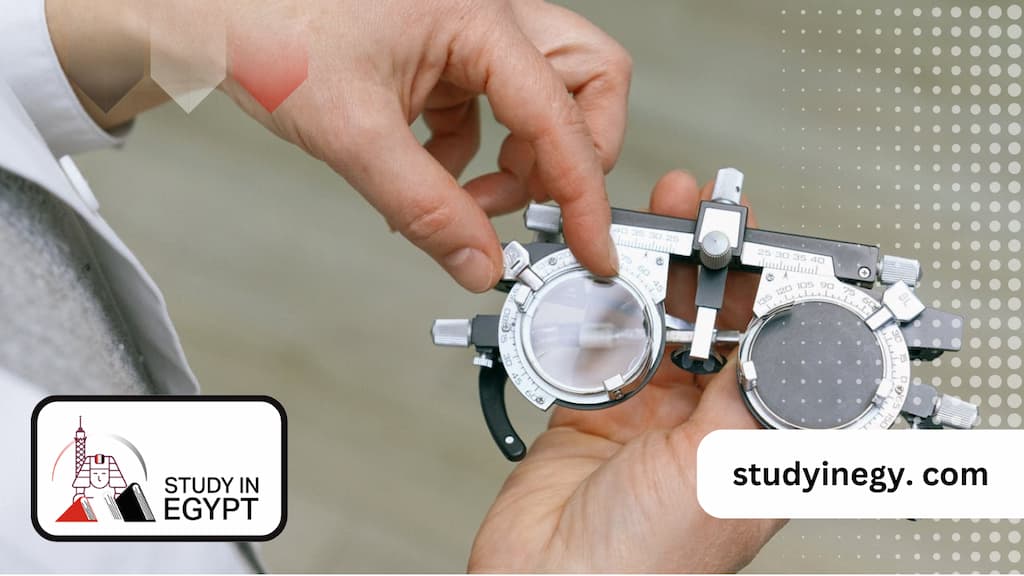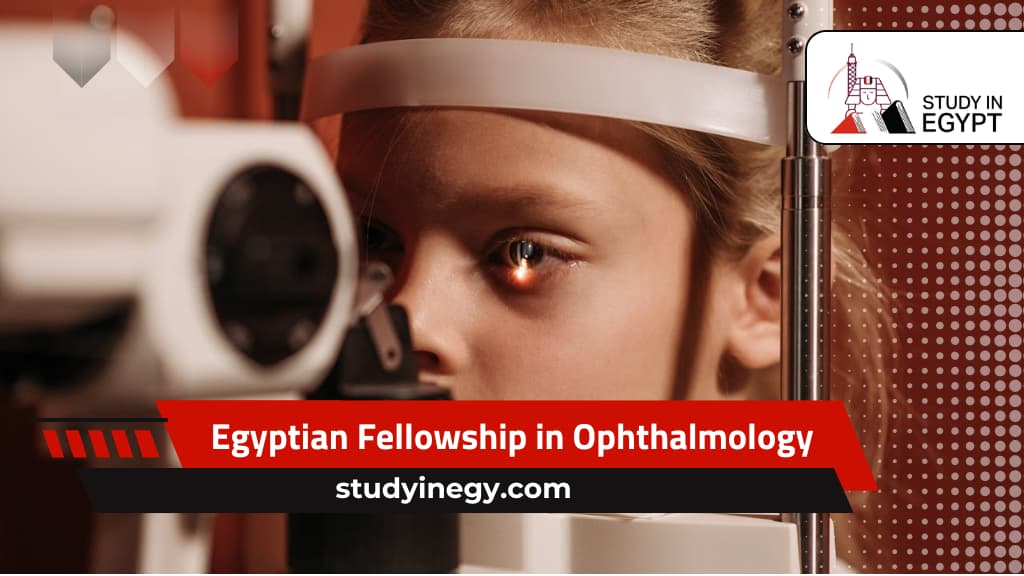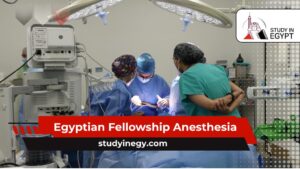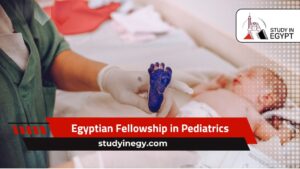The Egyptian Fellowship in Ophthalmology is this globally well-accredited, prestigious postgraduate practical program designed to cultivate highly skilled ophthalmologists equipped to meet international standards in eye care, having your training inside advanced, well-prepared governmental hospitals that receive countless numbers of patients with various cases daily.
The program spans 3-4 years, offering in-depth exposure to all subspecialties of ophthalmology, including anterior segment, glaucoma, retina, pediatric ophthalmology, oculoplastics, and neuro-ophthalmology, dealing with the cases in these progressive training hubs under the supervision of the experts.
The international trainees benefit from a high-volume clinical setting, gaining extensive hands-on experience in both outpatient and surgical procedures under the supervision of senior consultants in top-tier government and university hospitals.
The fellowship is led by a diverse faculty of experienced ophthalmologists, offering this program that integrates clinical practice with academic learning, including regular lectures, case presentations, journal clubs, surgical training, and exam preparation tailored to both local and international board standards.
The Certificates of the Egyptian Fellowship in Ophthalmology
The whole globe deals with the Egyptian Fellowship in Ophthalmology as a globally well-accredited program. It is offered at the top quality. Therefore, the certifications are globally highly valued, enriching the CV of whoever carries them.

The Tuition Fees for the Non-Egyptians
Egypt offers high-quality education in medicine at a fraction of the cost compared to many Western countries. Also, with affordable living expenses and a welcoming environment for international residents.
The international students pay only $8000 USD in the program. Also, life is inexpensive despite the high quality of the living standards. This includes accommodation, food, medical care, and even entertainment in this tourist country.
The Best Universities
- Cairo University—Kasr Al-Ainy Faculty of Medicine.
- Ain Shams University—Faculty of Medicine.
- Alexandria University—Faculty of Medicine.
- Tanta University—Faculty of Medicine.
- Assiut University—Faculty of Medicine.
Admission Requirements for the Egyptian Fellowship in Ophthalmology
To apply for the Egyptian Fellowship in Ophthalmology, candidates typically need:
- A recognized medical degree (MBBCh or equivalent) from an accredited university.
- Completion of internship/house officer training.
- A minimum of two years of clinical experience in ophthalmology or general medicine.
- Proficiency in English or Arabic to follow lectures and patient communication.
- Required documentation, including academic transcripts, a copy of the medical license, and a valid passport for international applicants.
International candidates are encouraged to contact the Egyptian Ministry of Health and Population or the local Egyptian consulate for guidance on application timelines and visa requirements.
Fellowship Structure and Learning Methods
The fellowship is carefully structured to cover both theoretical knowledge and practical expertise.
Participants benefit from:
- Rotation schedules across different subspecialties to ensure comprehensive exposure.
- Simulation-based surgical training to refine skills before operating on patients.
- Interdisciplinary collaboration with other specialists such as neurologists, endocrinologists, and oncologists when managing complex eye conditions.
- Continuous assessment through practical exams, OSCEs (Objective Structured Clinical Examinations), and periodic written tests.
Research and Academic Opportunities
The Egyptian Fellowship in Ophthalmology is not limited to clinical training. Fellows are encouraged to participate in research projects, publish in peer-reviewed journals, and present at local and international ophthalmology conferences.
Research areas may include:
- Advances in cataract surgery techniques.
- Public health approaches to prevent blindness in developing countries.
- Innovative diagnostic tools for retinal diseases.
- Studies on the prevalence of glaucoma and diabetic retinopathy in Egypt.
Such academic involvement strengthens the fellow’s professional profile and opens doors to teaching positions and research fellowships worldwide.
Career Prospects After Graduation
Graduates of the Egyptian Fellowship in Ophthalmology are well-prepared to:
- Work as consultant ophthalmologists in hospitals and private clinics.
- Join international health organizations focusing on eye care and vision health.
- Pursue subspecialty fellowships in advanced fields such as vitreoretinal surgery or pediatric ophthalmology.
- Teach ophthalmology at medical schools and training centers.
- Lead or participate in global blindness prevention initiatives.
The program’s global recognition makes its graduates competitive in job markets across the Middle East, Africa, Europe, and Asia.
Networking and Professional Growth
Being part of the fellowship offers a unique opportunity to network with leading ophthalmologists in Egypt and internationally. Fellows can build lasting professional relationships, gain mentorship, and join professional bodies such as the Egyptian Ophthalmological Society and the Middle East Africa Council of Ophthalmology (MEACO).
Living in Egypt as a Medical Fellow
Egypt offers a vibrant living experience for international trainees:
- Affordable accommodation options near hospitals and universities.
- A wide range of healthy and inexpensive food choices.
- Access to world-class historical landmarks such as the Pyramids, Luxor, and Aswan during off days.
- A warm and welcoming community with a strong tradition of hospitality.
The combination of low cost of living, rich cultural heritage, and high-quality medical training makes Egypt one of the best destinations for postgraduate ophthalmology education.







